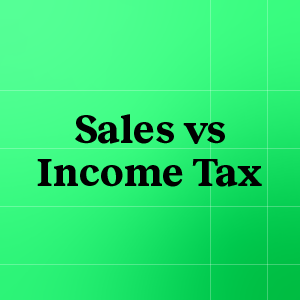The Best eCommerce Platforms
by November 1, 2020
This guest post is brought to you by our friends at Springbot. All opinions in this thoughtful post are theirs!
Should your eCommerce store be hosted or self-hosted? Do you prefer a platform that is feature-rich and customizable or simple to use and easy to set up? Or perhaps you prefer a combination of features to create the best fit for your online store.
These are just a few questions that you’ll find yourself facing as you search for the right eCommerce platform for your online store. It can seem a bit overwhelming, but don’t panic just yet. Our expert team of springbots are here to help make your choice a little bit easier. We’ve rounded up a list of the best eCommerce platforms that show a lot of promise for 2017.
Shopify
Shopify is a leading cloud-based solution that has grown enormously over the past few years. It has quickly become the go-to platform for many online merchants, which is why we integrated with Shopify last year so that we could meet the needs of our Springbot customers.
Is this eCommerce platform right for you? Check out the pros and cons of Shopify:
Pros: Shopify is a hosted solution designed for those with little web design experience, which is ideal for those who don’t want to get into the technical details. However, if you do have some technical knowledge, Shopify can be less expensive. They offer an intuitive interface, an impressively large app store, and the built-in features that your site needs to compete like a responsive checkout.
Cons: Pricing can be of concern for some retailers. While Shopify plans start with a very approachable rate, the add-on features and transaction fees can sneak up on you if you’re not mindful of them.
As you may already know, the less streamlined your checkout process is, the more it can potentially hurt your conversion rates. To build a streamlined eCommerce store, you’ll need to add some supplementary features to provide the best shopping experience.
Final Verdict: Shopify is a perfect solution for small to medium-sized businesses who want some ability to scale without needing tons of technical knowledge to run smoothly.
BigCommerce
Like Shopify, BigCommerce is another hosted solution that is popular among big and small businesses alike. However, there are some key differences that make it unique.
Pros: BigCommerce is easy to set up like Shopify, but it contains some out-of-the-box features that Shopify lacks (such as product reviews and shipping quotes). In fact, BigCommerce offers a lot of great tools in their monthly package that you would normally have to pay for in Shopify’s App Store.
Cons: Although you get some out-of-the-box features not included with other eCommerce platforms, BigCommerce doesn’t have as many apps in their app store. The platform has a smaller theme selection (though, after recent updates, they are catching up to Shopify). The pricing is similar to that of Shopify, but they have raised their prices for their more successful customers.
Final Verdict: BigCommerce is ideal for those who want slightly more room for customization of their store and the ability to scale. It is easy to use and offers excellent customer support, but BigCommerce can be pricey for some businesses.
Magento
Considered to be a premier open-source solution for eCommerce, Magento offers a robust and nimble platform for its users. Loaded with tons of helpful features, it’s easy to understand why so many businesses choose Magento over the competition.
Pros: Magento can handle many things that stump the competition. Business owners can manage different storefronts across multiple languages and currencies. True to open source, the Community version is free to users, and there are tons of extensions and plugin available to enhance the platform.
Magento is also very flexible and remains robust at any scale. That means a store can increase their product line as quickly as they want without overwhelming their eCommerce platform.
Cons: While Magento offers many great features, it oftens requires the assistance of a seasoned Magento developer to navigate the large platform. Developers can be pricey, and finding one well-versed in Magento can be harder than you think.
Without the expertise of a Magento expert, you can opt for the Enterprise version that comes with support, but it comes with a hefty price tag.
Final Verdict: Magento is a great solution for robust businesses that want to grow very quickly and have internal resources who know PHP and MySQL. Small businesses with limited budgets are probably best-suited for other platforms that provide user-friendly options and customer support.
Decisions, Decisions
We’ve listed our top three recommendations for eCommerce platforms to use in 2017, but choosing between these three platforms is still a difficult decision. There is no one best platform out there, and you will need to think about the needs of your own business before you make a choice. For best results, we recommend shopping for an eCommerce solution based on the features and services you need.
About Springbot
Springbot delivers an eCommerce marketing platform to small and medium businesses on BigCommerce, Magento, and Shopify to combines the power of marketing automation and marketing analytics. We integrate and make simple the data, content, and multi-channel marketing tools (social, online, email, etc.) you need to drive more traffic, conversions, and revenue. Find out how your store stacks up against your eCommerce peers with Springbot’s new free tool, the eCommerce Scorecard.








